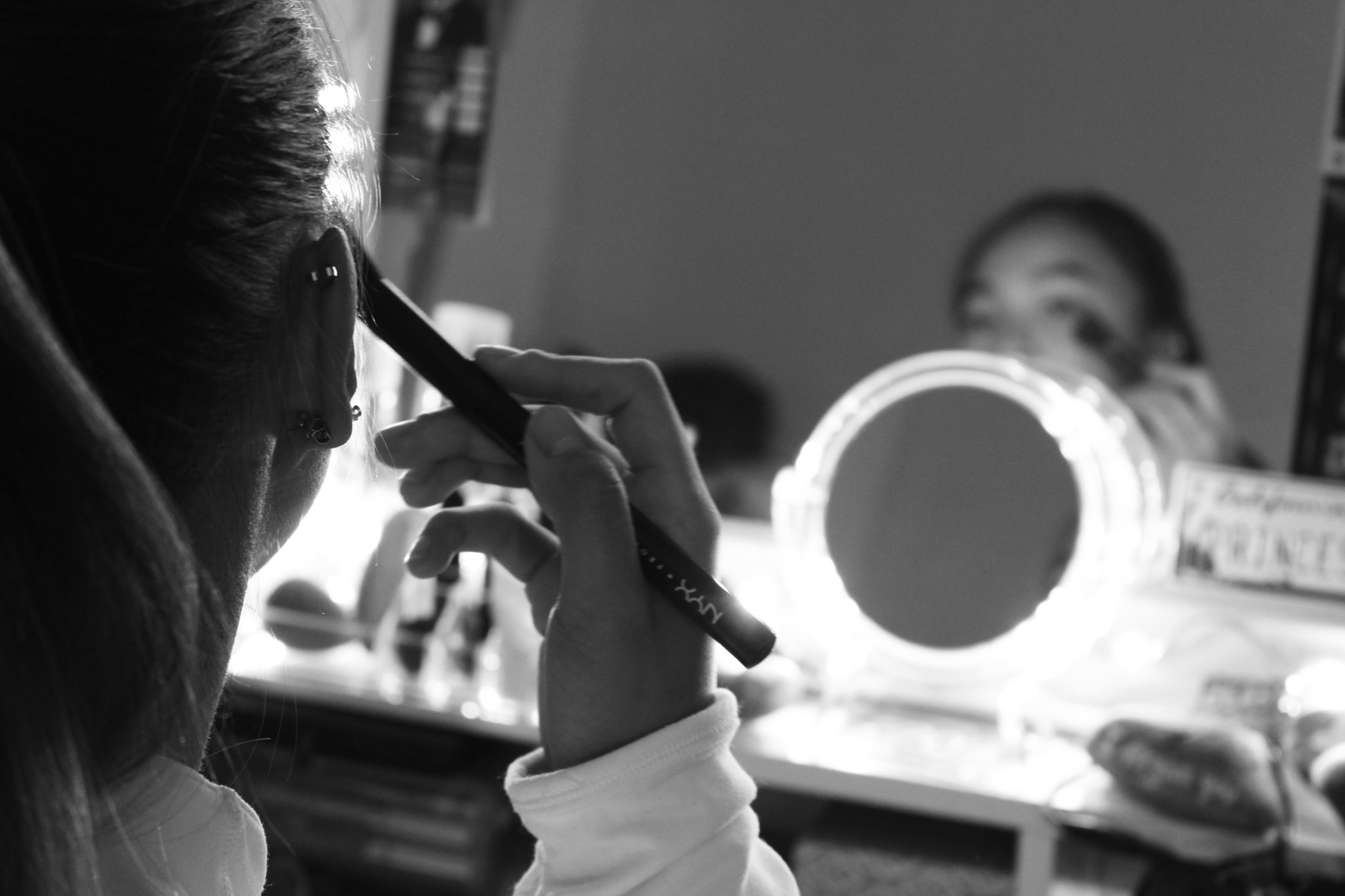
“I never feel like I need to wear makeup, but it’s always something that I want to do it. It’s never like ‘Oh I feel ugly without makeup,’ it’s just a preference. It’s a preference for a lot of people,” says freshman Paris Auerweck. Many times makeup is seen as a tool for people to cover their imperfections or to look better for the common good. However, with the growth of makeup popularity and culture, a new, more empowering idea has surfaced.
From the desire for perfectly angled eyebrows and blinding highlight all the way to sharply structured contour, makeup popularity has skyrocketed. New trends relating to makeup, such as using silverware to contour or using iPhones to blend foundation, only add to this growth. Social media channels provide an outlet for various makeup artists to share their art, create new concepts and spark interests in makeup for others.
To different people, makeup means many different things. For some, it provides an opportunity for individuals to express themselves. Freshman Skylah Catechi says, “It helps me to make bold choices that I otherwise would not make, which is really nice and it overall just helps me express my individuality.” Wearing bright lipsticks and different eyeshadow looks are just other ways for people to show their personalities in the same way that clothing or coloring one’s hair does.
For others, makeup is the key way to express themselves. “The outfit is one part, the shoes are one part, the hair is one part, but I think the most important thing is the makeup because it’s the face of everything,” says senior Gabe Floresca-Igtanloc. “The face is what makes up your personality and I really like that because it’s an extension of how I want to express myself as a person and of my artistry.”
Makeup can also be a hobby that people use to relax because they enjoy it. “Some people read all the time because they like to read. I like to do my makeup, so I do my makeup all the time. It means a lot to me in a sense that it’s therapeutic. It’s like a destresser,” says Auerweck.
Singing, dancing, painting and makeup all fall under the category of art, which is a broad spectrum. Of course, singing and makeup are not the same forms of art. Junior Karin Felsher says, “Makeup is something you can do for yourself. Dancing you could do for yourself, too. [However,] dancing and singing are more of performing things and makeup is something I do only for me.”
The social norms surrounding makeup are sometimes contradictory and convoluted. Catechi comments, “You can’t wear too much, but you can’t wear nothing and everyone judges your makeup.” Society doesn’t outline an ideal age when girls are expected or told to start wearing makeup, inciting many critiques. Auerweck experienced this once when she wore mascara to go out with her friends and her brother commented immediately. “I get he’s my brother and he’s protective, but I think people look at it as ‘Oh, she’s trying to be grown up’ or ‘She can’t wear makeup because she’s in the sixth grade,’ but why not? It’s not something that turns me into a 20-year-old all of a sudden,” says Auerweck
These are just tipping points on the iceberg of expectations put upon girls. The social norms regarding makeup towards boys, however, are more severe. Boys are told they are not supposed to wear makeup at all. If they do, they are called a variety of homophobic slurs that are still considered insults. Nonetheless, there are many male makeup artists that are breaking barriers. James Charles is CoverGirl’s first CoverBoy, Manny Mua is Maybelline’s first male ambassador and Jeffree Star has his own makeup company. However, makeup companies have only started to advertise to men. Senior Ty Gallegos says, “Thanks to Youtube and beauty vloggers, those norms are broken down a lot.” The male ambassadors are a step in the right direction, but a small step in a long journey.
In addition to makeup being advertised primarily towards women, the color range is also extremely limited. Floresca-Igtanloc says, “I think makeup’s very shifted towards women and it’s also shifted towards a more pale skin tone. I know some girls that I work with or that I know with really beautiful deep mocha skin, but they can’t find makeup that matches or goes well with it because their skin is so dark.”
These concepts about makeup are embedded in our society and have created, what many call, “makeup shaming.” Makeup shaming is when someone is looked down upon for wearing too much makeup. People still call those who wear makeup “fake” or “try-hards.”
Despite all these perceptions, the idea that makeup is an art form that people engage in solely for themselves is being introduced and embraced. As Auerweck says, “I’m wearing makeup because I like to wear makeup. I think that people who makeup shame others don’t see that point of view. They think people wear makeup because they want to feel pretty. I think it’s not about insecurities. It’s about who you are and if you want to wear makeup and it makes you feel good, then you should. Nobody else can change that.”




